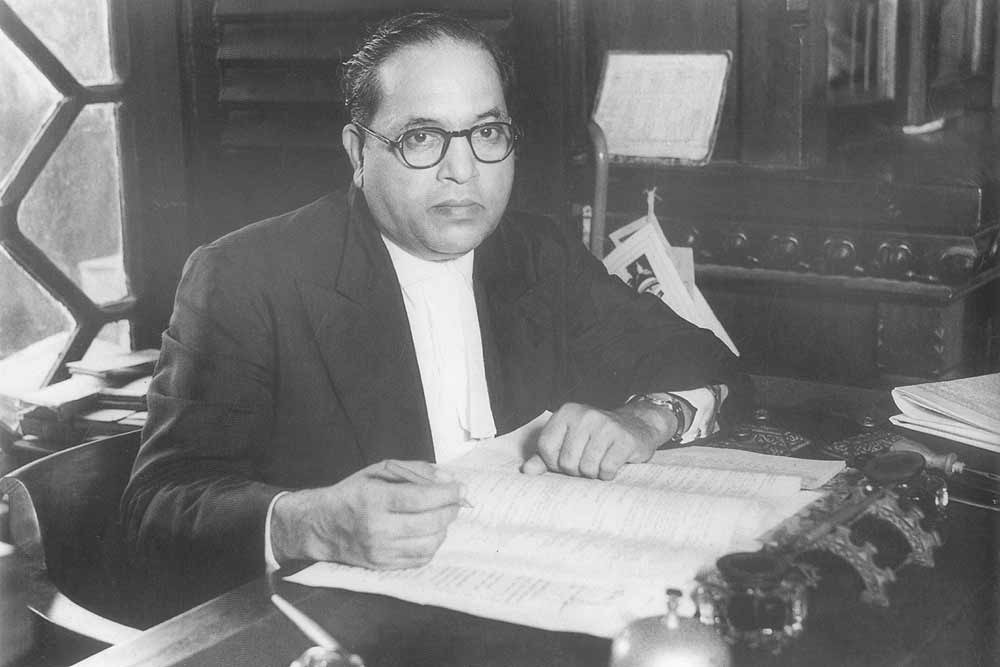
Do cities offer safe abode for Dalits from villages like Hathras? Yes, and no
The alleged gang rape and murder of a 19-year-old Dalit woman at Hathras in Uttar Pradesh has again put a question mark on the safety of Dalits in villages. There are many who quote Dr B R Ambedkar who had said villages were cesspools of cruelty, caste prejudice and communalism and that Dalits should move to cities to escape casteism.

The alleged gang rape and murder of a 19-year-old Dalit woman at Hathras in Uttar Pradesh has again put a question mark on the safety of Dalits in villages.
On October 2, when most states did not give the permission for holding Gram Sabha meetings, social media was abuzz with discussions on how villages — Mahatma Gandhi had called them the backbone of the country — can be developed and freed of caste discrimination if governments do not give local bodies their rights. On the flip side, there were also those who quoted Dr B R Ambedkar who had said villages were cesspools of cruelty, caste prejudice and communalism. He wanted Dalits to move to cities to escape casteism, people said. Some activists, however, said the problem is prevalent in cities, too, although in subtler forms.
Related News: Dalit girl gang-raped in UP’s Hathras dies in Delhi hospital
“When it comes to caste-based discrimination, there is no difference between villages and cities. In villages, the confrontation between ‘savarnas’ (dominant castes) and ‘avarnas’ (scheduled castes) will be more direct and intense. But, in cities, the discrimination happens indirectly. People from the dominant castes carry the pride of their castes and animosity towards SCs in their mind, they won’t show it in their actions,” said former IAS officer Christodas Gandhi.
According to Gandhi, one cannot say if cities are safer for Dalits than villages because there is no data on cases of caste discrimination in cities. However, one of the severest forms of discrimination in cities is the denial of rental accommodation to SCs, he said. “In government offices, the discrimination happens during performance reviews,” he said. “However I don’t buy the argument that Dalits should come to cities to escape caste atrocities. The Constitution has provided reservation in local bodies. When more and more Dalits play a role in rural governance, caste atrocities will decrease in villages. As of now, Dalit representatives need guidance and empowerment,” said Gandhi.
Kiruba Munusamy, the first Dalit woman advocate in the Supreme Court who witnessed discrimination even in court, said unless there are structural changes brought about in villages, like abolishing separate settlements and introducing separate electorates, caste atrocities will continue to rise.
“Many think Delhi, being the capital city, won’t discriminate people based on caste. But, when I first came to Delhi, I realised people are judged based on the place they stay in. I stayed at Karol Bagh. It has a lot of people from the oppressed classes. When I was trying to join as a junior in some counsels’ offices, I was asked why I was staying there. But after they came to know my caste, they acted differently,” she said.
Related News: Dalit panchayat chief in TN says she faces casteist slurs
Unless the educated Dalits develop a fighting attitude, they will not be able to survive in places where body politics and English language skills play a vital role, she said.
Dr Mari Raj, founder, Democratic Doctors Association, which helps doctors from Dalit background address issues like delays in promotion, etc, said Dalit identity deprives them from opportunities in cities. “When I was doing my postgraduate studies in Ahmedabad, I was not permitted to surgery classes because of my caste. The professors asked me to serve tea instead,” said Raj, who hails from a village in the Tirunelveli district.
He said untouchability is practised in cities too. “Almost all manual labourers in the cities are from the depressed castes. Even the fortunate among them find it difficult to get a house for rent, they have no presence in businesses. Higher officials in corporates are from higher Hindu castes,” said Mari Raj.
Caste discrimination is visible not just in jobs but sports, too, say many. “In villages, Dalit players cannot expect to become a member in teams dominated by caste Hindus. I go to cities for coaching. When the team members and coach come to know that I am a Dalit, they let me play only as a substitute. We need to constantly prove our skills to get a place in the main team,” footballer James Tremenheere, who is now working as an assistant at a Block Development Office in Dharmapuri district, said.
C Paramasivan, assistant professor in the department of commerce of Periyar EVR College in Tiruchirapalli, said most banks reject loans for Dalit businessmen in both rural and urban areas. Paramasivan has conducted a central government-funded research on economic violations against Dalit entrepreneurs in Tamil Nadu.
Related News: Amid UP Dalit rape shock, TN shows why the community gets a raw deal
“Banks accept incomplete applications also from non-Dalit businessmen, but reject those of Dalit even for slightest mistakes. The licensing procedures are delayed long at bureaucratic levels comparing to other castes. Likewise, many Dalit entrepreneurs expressed their agony that educated non-Dalits are not showing interest to work under them even if they are paid well. In some cases, supply of raw materials were stopped abruptly since the suppliers came to know their caste,” he said.
In cities, one can find shops like ‘Iyengar Bakery’, ‘Nadar Mess’, ‘Chettiar Traders’, etc but it is difficult to find a ‘Paraiyar Hotel’ or ‘Pallar Stores’ or ‘Arunthathiyar Cafe’. This itself an evident that cities too discriminate people based on caste, added Paramasivan.


